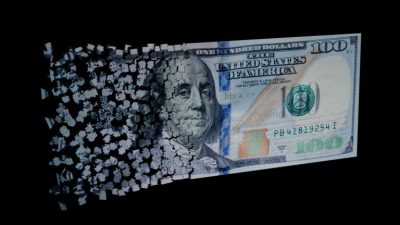
Dilma Rousseff was re-elected for a new term as head of the BRICS New Development Bank (NDB) on March 23, only days after admitted Indonesia into the multilateral bank. In this way, Dilma is continuing her work of generating liquidity for the NDB, while also expanding the global de-dollarization process.
The diplomatic backing she established during her years as president of Brazil (2011-2016), combined with her strong performance as president of the NDB, were assets that contributed to her unanimous re-election. Heading the institution since 2023, after Brazilian President Luiz Inácio Lula da Silva appointed her to replace Marcos Troyjo, chosen by Jair Bolsonaro’s government, Dilma takes on a new five-year term.
Russian President Vladimir Putin, who has the power to nominate the head of the BRICS Bank for the next cycle, nominated Dilma to continue in the role. The reasons that led to her reappointment to preside over the NDB are diverse, but always taking into account the quality of the work under her leadership at the bank. Dilma generated liquidity, resulting in a new volume of credit contributions for infrastructure projects.
Additionally, the sanctions imposed on Russia also influenced Putin’s decision to select Dilma. It would be significantly more challenging for a Russian official to travel to other countries, engage in person-to-person political negotiations with foreign authorities, and even utilize banking and financial services on behalf of a bank while under sanctions.
Despite the procedural move, Dilma’s nomination is an important political gesture from Russia to Brazil, signaling a certain convergence of interests between the two countries.
In 2024, the president of the NDB attended the St. Petersburg International Economic Forum and the BRICS Summit in Yekaterinburg. On both occasions, the issue of de-dollarization of the world economy was on the agenda.
Praised by the NDB members for providing new lines of credit and expanding financing for development projects in the group’s member countries, Dilma will also extend the debate on de-dollarization. De-dollarization can be achieved through the use and creation of mechanisms, such as the BRICS payment system, popularly known as BRICS Pay, which was announced last year at the summit in Russia and has now been established.
Security and the ability to strengthen the NDB are factors to be considered in Dilma’s next term, especially given the uncertainties generated on the international scene with Donald Trump in the White House once again.
The NDB can also serve — as it has already done — as a safe loan instrument, targeting investments in the infrastructure and sustainable development sectors. This security lies in the fact that the rules will not change suddenly and that there is a certain predictability surrounding the loan conditions and application of resources.
Although a former Brazilian president will wield significant power, it will not translate into the South American country having disproportionate influence over the BRICS Bank. The fact that she was unanimously re-elected gives Dilma the conditions to exercise her position in accordance with what she and her team deem appropriate, respecting the rules.
In fact, during her first tenure, there was a relatively balanced distribution of approved projects among the BRICS members, despite her nomination by Brazil. She will need to negotiate with many countries, and above all, fulfill the bank’s mission; therefore, she cannot prioritize Brazil’s interests.
The integration of new partners is also on the agenda for the future of the institution. The latest report released by the bank does not provide a clear indication of who will be allowed to join and under what conditions, but emerging economies such as Vietnam, Nigeria, and Malaysia are likely candidates to join the bank.
The board of directors of the NDB held its 46th meeting at the bank’s Shanghai headquarters on March 20, during which a “robust and dynamic” project pipeline and progress in membership expansion were discussed.
“The board of directors took note of the progress of membership expansion and provided its guidance for the next steps,” a statement following the meeting said.
Then, five days later, Dilma met with Indonesian President Prabowo Subianto in Jakarta to discuss the Southeast Asian country’s membership in the NDB.
“The Indonesian government has decided to join the New Development Bank. I think that is the most important thing from this meeting,” Prabowo said following the meeting, adding that he hoped Indonesia could access new funding sources to support infrastructure projects and national development.
“Indonesia’s presence is crucial in building an alliance in BRICS, which is a new organization that created a bank called NDB,” Dilma said.
Given that Dilma already expanded the NDB days after her tenure was renewed, it suggests the direction the bank will take in the coming years. This also includes advancements in de-dollarizing the global economy.
*
Click the share button below to email/forward this article. Follow us on Instagram and X and subscribe to our Telegram Channel. Feel free to repost Global Research articles with proper attribution.
This article was originally published on InfoBrics.
Ahmed Adel is a Cairo-based geopolitics and political economy researcher. He is a regular contributor to Global Research.
Featured image source
Global Research is a reader-funded media. We do not accept any funding from corporations or governments. Help us stay afloat. Click the image below to make a one-time or recurring donation.
Counter Information publish all articles following the Creative Commons rule creative commons. If you don't want your article to appear in this blog email me and I will remove it asap.




















No comments:
Post a Comment